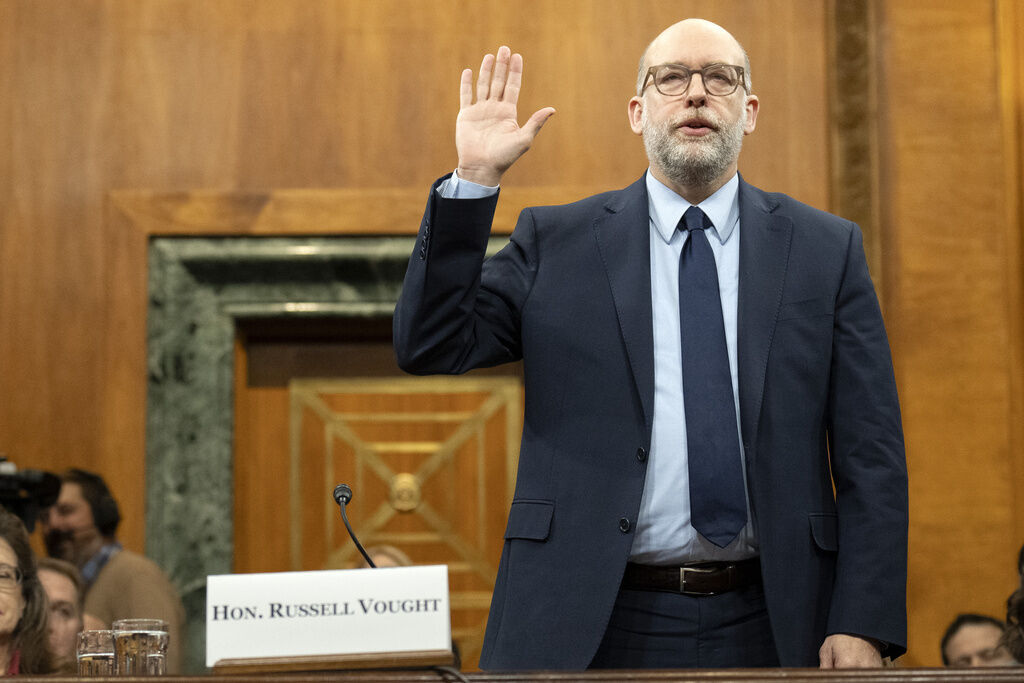
# **Kelvin Droegemeier Encourages Scientists to Adopt Deregulation Amid Political and Funding Instability**
### **A Plea for Regulatory Change in Science**
Meteorologist [Kelvin Droegemeier](https://climas.illinois.edu/directory/profile/kkd), who worked as science advisor to President Donald Trump during his initial term, is urging the scientific community to view the current political situation as a chance to reduce excessive regulations. In a video address at the [annual meeting](https://meetings.aaas.org/program/) of the American Association for the Advancement of Science (AAAS) in Boston on February 15, Droegemeier stressed the importance of decreasing administrative burdens in federally funded research.
“This administration is very focused on deregulation and minimizing administrative workload and complications that can restrict our capabilities,” Droegemeier noted. He pointed out that university faculty receiving federal research funding spend approximately **42% to 44%** of their time on administrative activities unrelated to research—time that could instead support scientific advancement. He called on both policymakers and scientists to take advantage of the administration’s focus on deregulation to release intellectual capabilities within the research sector.
### **Worries About Research Security and Workforce Cuts**
Although Droegemeier highlighted the advantages of minimizing administrative roadblocks, his comments were met with skepticism from some researchers, especially considering the recent actions of the Trump administration affecting the scientific workforce.
With over **1,100 job cuts** at the National Institutes of Health (NIH), **1,300 layoffs** at the Centers for Disease Control and Prevention (CDC), and major downsizing at the Food and Drug Administration (FDA), many are questioning how these alterations will create a more efficient research landscape. Additionally, reports suggest that the **National Science Foundation (NSF) may experience a staffing reduction of up to 50%**, raising worries about the future of federal scientific initiatives.
To exacerbate these issues, research grant applications are now facing **keyword-driven flagging** for more reviews, and science review panels have been **postponed or halted** due to shifting administrative practices. Some attendees at the AAAS conference voiced concerns about how these actions will promote efficiency instead of hindering progress.
### **Rethinking Research Funding Models**
Droegemeier proposed that, in spite of worries about budget cuts for federal scientific programs, funding reductions might serve as a chance to reconsider how research is organized and funded.
“It’s a moment for us to reevaluate how we finance various aspects of research, particularly fundamental research,” he stated, mentioning a large number of **overly detailed requests** from federal agencies. He contended that potential budget cuts should inspire researchers to **simplify procedures and boost efficiency**. While recognizing the **challenging phase** currently faced by the scientific community, Droegemeier recalled past difficulties that the field has managed to overcome.
Conversely, molecular biologist [Florent Bernard](https://www.linkedin.com/in/florent-bernard-76a5b250/), speaking personally at the event, expressed significant concerns. “We can’t simply mask [these actions] as a desire for more efficiency [in research],” he insisted, reflecting a widespread unease regarding changes in the US research framework.
### **Rebuilding Trust in Universities and Academic Freedom**
In his address, Droegemeier also took issue with universities, suggesting they have **diminished public trust**. He raised concerns about **freedom of speech** and **academic culture**, insisting that universities bear more responsibility for tackling these challenges.
“Universities in this country have accountability issues, and I don’t see them addressing these, which is quite unfortunate,” he remarked. Droegemeier seemed to allude to the growing debates surrounding free speech, inclusivity, and ideological variation within academic settings.
Supporting his views, [Claudia Neuhauser](https://www.uh.edu/research/about/organization/claudia-neuhauser/), vice president and vice chancellor for research at the University of Houston, stressed that institutions must continuously prove their worth. “Taxpayer funds are supporting this work,” she noted, highlighting the necessity for improved public communication regarding scientific progress.
### **A Polarized Environment for Science Policy**
The wider **scientific community remains split** over the Trump administration’s stance on science policy and funding. While some view deregulation as a means to boost research efficiency, others fear that **substantial budget reductions, staff layoffs, and research constraints** will hinder long-term scientific development.
Just two days prior to Droegemeier’s comments, AAAS leadership openly criticized the Trump administration’s **“unparalleled assaults” on science**, cautioning about the potential lasting impact on American research. As Trump’s presidency unfolds, the balancing act between deregulation, funding cuts, and scientific autonomy will persist as a critical concern for researchers nationwide.